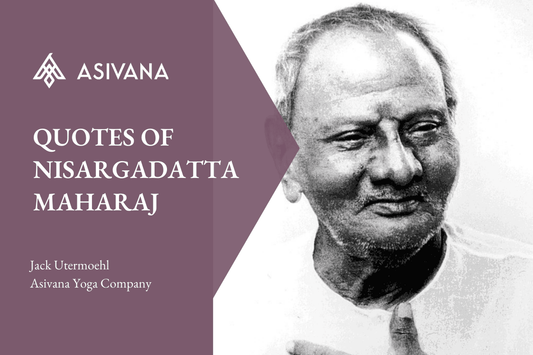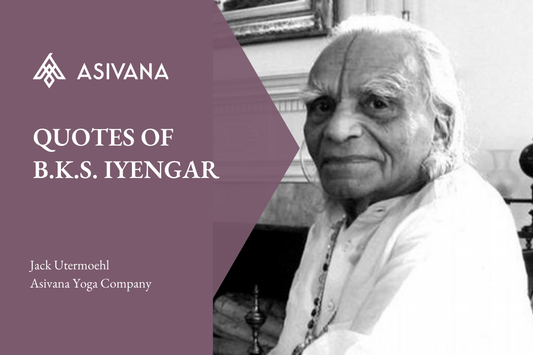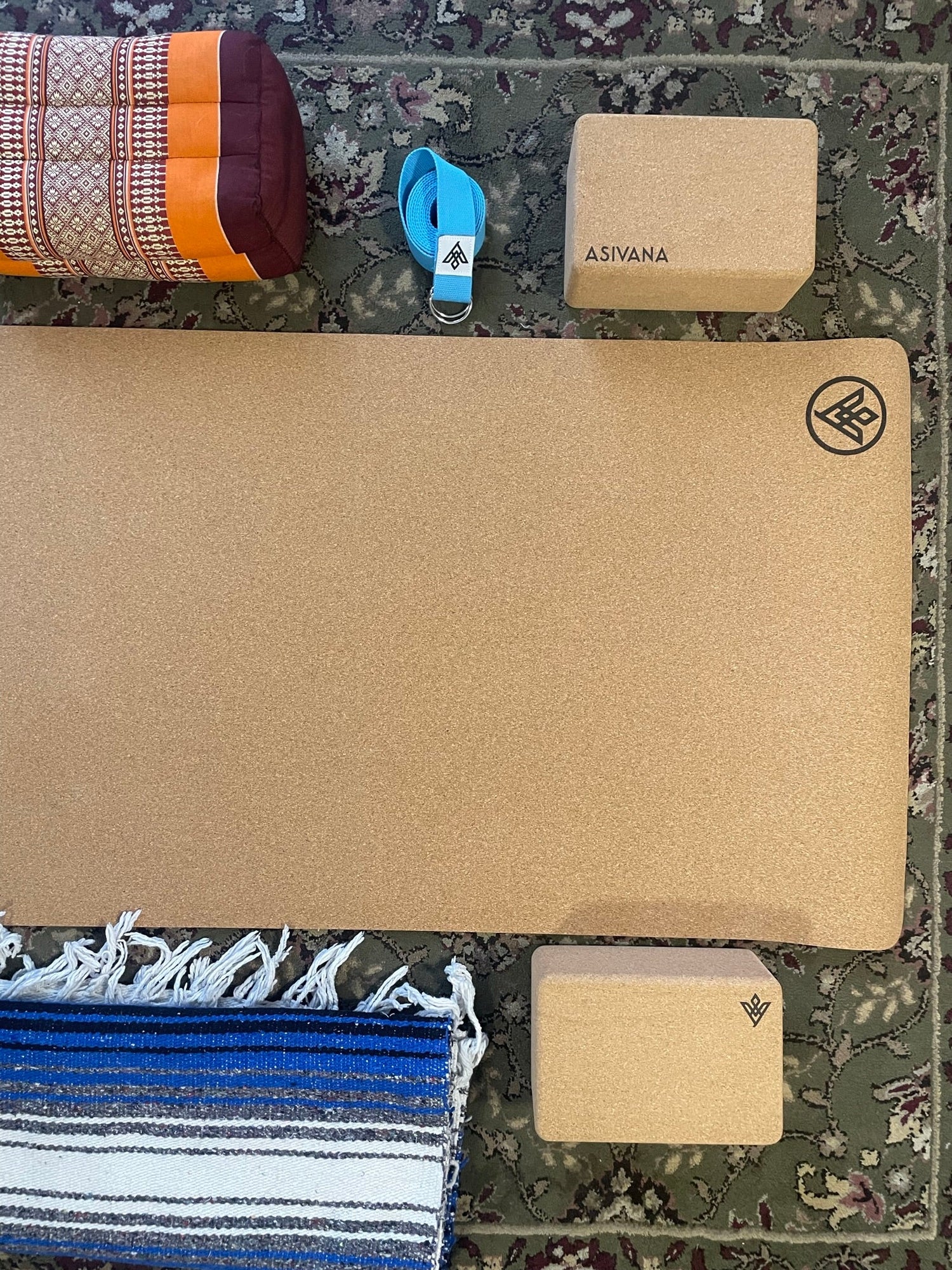
Becoming a Yoga Instructor With No Experience
Jack UtermoehlBecoming a yoga instructor with no experience might seem daunting, but with the right guidance and dedication, you can transform your passion for yoga into a fulfilling side job or even career. This comprehensive guide will walk you through each step of the process, from understanding what yoga entails to navigating the challenges of being a new yoga instructor.
As an E-RYT 200 Certified Yoga Teacher with over 3000 hours of teaching experience, presenting at yoga festivals around the US, guest teaching at yoga teacher trainings (YTTs), and hosting my own yoga events at Bhakti House Yoga Studio in Colorado, I'm here to share my insights and help you navigate your yoga journey.
What is Yoga?
Yoga is a holistic practice that combines physical postures (asana), breathing exercises (pranayama), meditation (dharana), and ethical principles (yamas) to promote overall well-being. Originating in ancient India, yoga has evolved over thousands of years and is now practiced worldwide in various forms.
The physical aspect of yoga, known as asana, is just one component of a comprehensive system known as the 8-limbs of yoga as described by the great sage Patanjali. There are numerous types of yoga that have their own lineages, teachers, and methodologies for achieving certain goals within and through yoga.
As a yoga practitioner, you likely already know a few styles of yoga and which one(s) you’re interested in becoming an instructor. If you’re curious to know more, you can see our full list of all types of yoga.

The Role of a Yoga Instructor
A yoga instructor is more than just a guide through physical postures; they are a mentor, a motivator, and a source of inspiration for their students.
Responsibilities include planning and leading classes, demonstrating and correcting alignment, and creating a safe and welcoming environment for all practitioners. Instructors also provide modifications for different skill levels and offer guidance on integrating yoga principles into daily life.
A lot goes into becoming a great yoga instructor. But to get started, you need to simply know how to put a sequence together and guide students through that sequence safely.
Benefits of Becoming a Yoga Instructor
Becoming a yoga instructor offers numerous personal and professional benefits.
Personal Benefits
Deepening Your Practice: One of the most significant personal benefits of becoming a yoga instructor is the deepening of your own yoga practice. Teaching yoga requires a comprehensive understanding of postures, breathing techniques, and the philosophy behind the practice.
Self-Awareness: Teaching yoga evokes greater self-awareness. As you guide others through their practice, you become more attuned to your own body and mind. This heightened awareness can lead to a more mindful and present way of living.
Personal Growth: The journey of becoming a yoga instructor is a transformative one. It challenges you to step out of your comfort zone, embrace vulnerability, and develop resilience. The process of learning to teach yoga often brings up personal growth opportunities, encouraging you to face and overcome your own limitations and fears.
Healthier Lifestyle: As a yoga instructor, you naturally lead a lifestyle centered around health and wellness. Regular practice, coupled with a commitment to teaching, promotes physical fitness, mental clarity, and emotional balance. This holistic approach to health can lead to lasting improvements in your overall well-being.
Sense of Purpose: Helping others through yoga can provide a profound sense of purpose. Many instructors find great satisfaction in witnessing their students' progress and knowing they have made a positive impact on others' lives.
Professional Benefits
Diverse Work Environments: Professionally, becoming a yoga instructor opens up a variety of work environments. You can teach in yoga studios, fitness centers, community centers, and even schools. Additionally, many instructors find opportunities in corporate settings, offering classes to employees as part of wellness programs. This diversity allows you to choose the setting that best suits your preferences and lifestyle.
Flexible Work Hours: Yoga instructors often enjoy flexible work hours, which can be particularly appealing if you are balancing other commitments such as family or another job. This flexibility allows you to design a schedule that works for you, providing a healthy work-life balance.
Opportunities for Travel: Teaching yoga can also present opportunities for travel. Yoga retreats, workshops, and festivals often seek skilled instructors to lead classes in beautiful and inspiring locations.
Sustainable Career: With the growing popularity of yoga worldwide, the demand for qualified instructors continues to rise. This trend provides a stable foundation for building a sustainable career. Whether you choose to work independently, join a studio, or start your own business, the potential for long-term success is significant.
Entrepreneurial Opportunities: Many yoga instructors leverage their skills to create entrepreneurial opportunities. This can include starting your own yoga studio, developing online courses, writing books or blogs about yoga, and offering specialized workshops or yoga teacher trainings.
Community Building: Becoming a yoga instructor also means becoming part of a supportive community. Connecting with other instructors, attending workshops, and participating in yoga events can help you build meaningful connections. These relationships can provide support, inspiration, and opportunities for collaboration.
Personal Branding and Online Presence: In today's digital age, yoga instructors have the advantage of building a personal brand and online presence. Utilizing social media platforms, creating a professional website, and offering online classes can expand your reach and attract a global audience.
Financial Rewards While the financial rewards of being a yoga instructor can vary, many find that they can build a satisfying career, especially when they diversify their offerings. Private classes, workshops, retreats, and online classes can all contribute to a healthy income.
Continuous Learning and Development Finally, the field of yoga is one of continuous learning and development. As an instructor, you will have ongoing opportunities to deepen your knowledge, learn new styles, and enhance your teaching skills. This commitment to lifelong learning keeps your practice fresh and engaging.

Is it Possible to Become a Yoga Instructor with No Experience?
Absolutely! Many successful yoga instructors started with no prior experience including myself. In fact, I started just a few months after discovering yoga. While we all take our own time to start, we all are fueled by our passion. If you have passion for yoga, you will be able to instruct yoga students with some training, no experience needed.
The key is a genuine passion for yoga, a commitment to learning, and a willingness to step outside your comfort zone. Yoga teacher training programs are designed to equip beginners with the knowledge and skills needed to teach effectively.
Many teachers even start without an official yoga teacher training program. They might call upon their past experiences taking yoga classes or have a friend mentor them.
Many yoga practitioners become instructors from unique experiences like a friend of mine that taught yoga while working in Antarctica. They didn’t have anyone else so she took it upon herself to instruct a yoga class twice a week without any experience.
Essential Qualities of a Successful Yoga Instructor
To succeed as a yoga instructor, certain qualities are essential. These qualities can be learned and do not need to be perfected before beginning. These qualities include:
Patience and Empathy: Understanding students' needs and limitations.
Communication Skills: Clearly conveying instructions and feedback.
Adaptability: Adjusting teaching methods to suit different students and settings.
Commitment to Personal Practice: Continuously developing your own yoga practice.
Passion for Teaching: A genuine desire to share the benefits of yoga with others.

Choosing the Right Yoga Teacher Training (YTT)
Selecting the right YTT is crucial. Consider factors such as:
Accreditation: Ensure the program is accredited by Yoga Alliance or The International Association of Yoga Therapists.
Instructors: Research the instructors' qualifications and teaching styles. Interview the teacher if you do not know them personally. Make sure you can trust them and that they have social proof they can teach you to instruct yoga.
Curriculum: Review the course content and structure. Make sure you’re excited!
Location and Schedule: Choose a program that fits your lifestyle and commitments. You do not want to miss a meeting. 200 hours sounds like a lot but it’s just a taste. Every moment of your YTT will matter.
Reviews and Testimonials: Seek feedback from past participants. Social proof is vital if you do not know the teacher personally.
How to Prepare for Yoga Teacher Training
Preparation is key to getting the most out of your YTT.
- Physical Readiness: Build a consistent yoga practice schedule.
- Mental Preparation: Cultivate a mindset open to learning and growth.
- Emotional Readiness: Be prepared to face and process personal challenges that may arise.
The Structure of a Typical Yoga Teacher Training Program
A typical YTT includes:
- Asana Practice: In-depth study and practice of yoga postures.
- Anatomy and Physiology: Understanding the human body and how it moves.
- Philosophy and Ethics: Studying the principles and history of yoga.
- Teaching Methodology: Learning how to structure and lead classes.
- Practicum: Hands-on teaching experience.
What to Expect During Yoga Teacher Training
During YTT, expect a rigorous schedule that balances physical practice, theoretical learning, and practical teaching experience. Days often start early with meditation and asana practice, followed by lectures, workshops, and group discussions. Evenings may include additional practice or study time.
Each YTT will vary. Some take months meeting 1 weekend a month while others immerse you into a several week teaching program. Some prefer the immersion, others prefer time for integration, while others are restricted by other obligations in life.
You can expect to connect with yourself in a whole new way. You may meet lifelong friends, if not very close friends. Many participants will be there just for their own practice. These yoga practitioners may be your greatest supports as they watch and participate in your instructing capabilities.
Tips for Succeeding in Yoga Teacher Training
To thrive in YTT you must:
- Stay Organized: Keep track of assignments, readings, and practice sessions.
- Be Open-Minded: Embrace new concepts and experiences.
- Practice Regularly: Consistent practice reinforces learning.
- Engage with Peers: Build supportive relationships with fellow trainees.
- Ask Questions: Seek clarity whenever needed.

Gaining Yoga Teaching Experience
After completing a YTT, gaining teaching experience is crucial. Start by:
- Offering Free Classes: Teach friends, family, or community groups.
- Assisting Established Instructors: Gain insights and mentorship.
- Substituting Classes: Fill in for other instructors to build experience.
- Joining a Studio: Look for opportunities to teach at local studios.
Building Confidence as a New Yoga Instructor
Building confidence takes time and practice but confidence will grow. Take these steps towards greater confidence.
- Preparation: Plan your classes thoroughly.
- Feedback: Seek constructive feedback from students and mentors.
- Personal Practice: Maintain and deepen your personal practice.
- Self-Compassion: Be kind to yourself and acknowledge your progress.
Creating Your Unique Teaching Style
Developing your unique teaching style is part of the joy and satisfaction from being a yoga instructor. This is what sets you apart from other yoga instructors and also what your students love about you.
Reflecting on Your Values: Identify what is most important to you in yoga. Teach from this perspective.
Personal Experiences: Share your journey and insights. Do not make your classes about you but sharing your journey inspires and encourages others.
Experimenting: Try different approaches and see what resonates. Don’t be afraid to experiment. When in doubt, use your communication skills and let your students know you’re about to experiment.
Marketing Yourself as a Yoga Instructor
Effective marketing includes:
- Creating a Professional Website: Showcase your services and experience.
- Networking: Build connections within the yoga community.
- Offering Special Classes: Share specialized knowledge and attract new students.
- Promotions: Use discounts or special offers to attract beginners.
Utilizing Social Media to Grow Your Yoga Business
Social media can be a powerful tool for growth. You may be great with social media or maybe you hold it in disdain. While social media can accelerate your growth as a yoga instructor with no experience, it is not a requirement if you dread using it.
For those that wish to use social media to amplify their yoga teaching career, follow these tips:
Consistent Posting: Share regular updates and content.
Engaging Content: Post videos, tutorials, and inspirational quotes.
Interacting with Followers: Respond to comments and messages.
Networking and Building Community Connections
Networking helps build your reputation and opportunities. Attend:
- Yoga Festivals: Meet other instructors and enthusiasts.
- Workshops and Trainings: Continue learning and connecting.
- Community Events: Engage with your local community.

Continuing Education and Professional Development
Ongoing education is vital for growth. You may start with a mentorship or a 200 hour YTT but there’s so much more to being a teacher. You only get to be a yoga instructor with no experience for a short amount of time.
- Advanced Trainings: Deepen your knowledge in specific areas. Explore 300 hours YTTs for your 500 hour certification.
- Workshops: Learn from other experienced instructors. You can find these at your local yoga studio, across the country with your favorite instructors, or at yoga festivals.
- Online Courses: Convenient options for continual learning. There are numerous options
- Read Books: The best way to learn and integrate yoga practices as an instructor with no experience is to read quality books.
- Mentorship: Find a mentor to help guide you through your unique path. Yoga mentors can help you amplify your teaching journey.
Balancing Teaching with Personal Practice
Maintaining balance is essential.
Scheduling Personal Practice: Dedicate time for your own yoga.
Self-Care: Prioritize rest and relaxation.
Mindfulness: Stay present and avoid burnout.
Challenges Faced by New Yoga Instructors and How to Overcome Them
Common challenges are experienced by just about every yoga instructor with no experience. Ask an instructor for further guidance if you need some light on the path.
Most of us began with no students. Finding students can be a challenge if we don’t have a teaching space at a local yoga studio or fitness center. Be consistent once you start and more students will arrive.
Finances can be a challenge. Most yoga instructors do not make a lot of money, however with some focus and dedication, you can make satisfactory money by offering classes that people love. Try teaching in the park for cash donations or creating a series with an end goal.
Our own minds may challenge us. Self-doubt, low confidence, and self-worth all play a role in how we show up. When we get stuck on one of these trains, we spiral downward. Reassure yourself that just because you are an instructor with no experience that that doesn’t mean you cannot become a great instructor. Move through this liminal space until you find your unique voice, people, and niche in the yoga world.
I believe in you, even if you do not.

FAQ For Yoga Instructors With No Experience
How long does it take to become a certified yoga instructor?
The duration of a YTT program varies, but most take around 200 hours to complete over a few weeks to several months.
Many 200 hour YTTs offer additional benefits like a free unlimited yoga class pass at the studio for the duration of the YTT.
Can I become a yoga instructor if I'm not very flexible?
Yes, flexibility is not a prerequisite for teaching yoga nor even practicing yoga. What matters most is your dedication and willingness to learn.
How much does yoga teacher training cost?
Costs vary widely depending on the program, location, and duration. Expect to invest between $2,000 and $3,000. However this price is likely to increase in the future. Well-known programs or teachers may charge a premium.
Online only YTTs may only cost a few hundred dollars but the savings will not help you become a better yoga instructor. In fact, being online only, you lose the majority of the benefits of learning to teach a physical community oriented practice.
Do I need to be certified to teach yoga?
While certification is not legally required everywhere, it is highly recommended to ensure you are well-prepared and credible.
Several yoga instructors began without a course, YTT, or official training. Eventually you will want to take an accredited certification course. Maintaining your certification however is not seen as required by most of the yoga community.
Can I teach yoga part-time?
Yes, many instructors teach part-time while balancing other commitments. This is in fact the most common approach yoga instructors have. Most doing it for a free membership at their local gym or yoga studio while connecting to a community they love being part of.
Teaching yoga part-time can give you a healthy outlet for your energy while also providing an additional source of income.
What should I bring to yoga teacher training?
Bring comfortable clothing, a yoga mat, a yoga journal, and any required textbooks or materials specified by your program.
You Can Become a Yoga Instructor With No Experience
Embarking on the journey to become a yoga instructor with no experience is a transformative and rewarding endeavor. With dedication, the right training or mentorship, and continuous learning, you can build a fulfilling skill sharing the benefits of yoga with others.
Remember, every expert was once a beginner. Start your journey today, and embrace the growth and opportunities that lie ahead.
I believe in you, you can do this.









